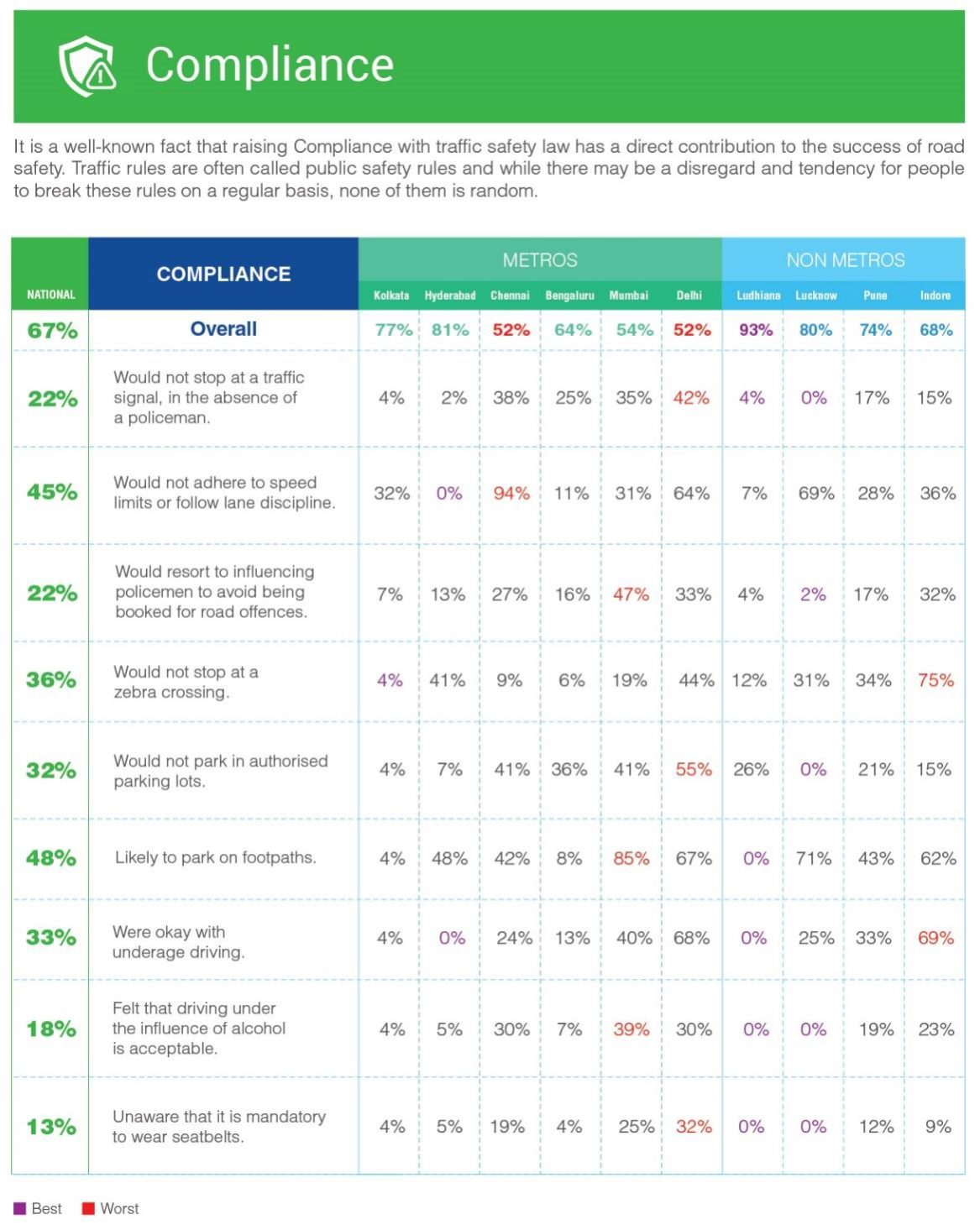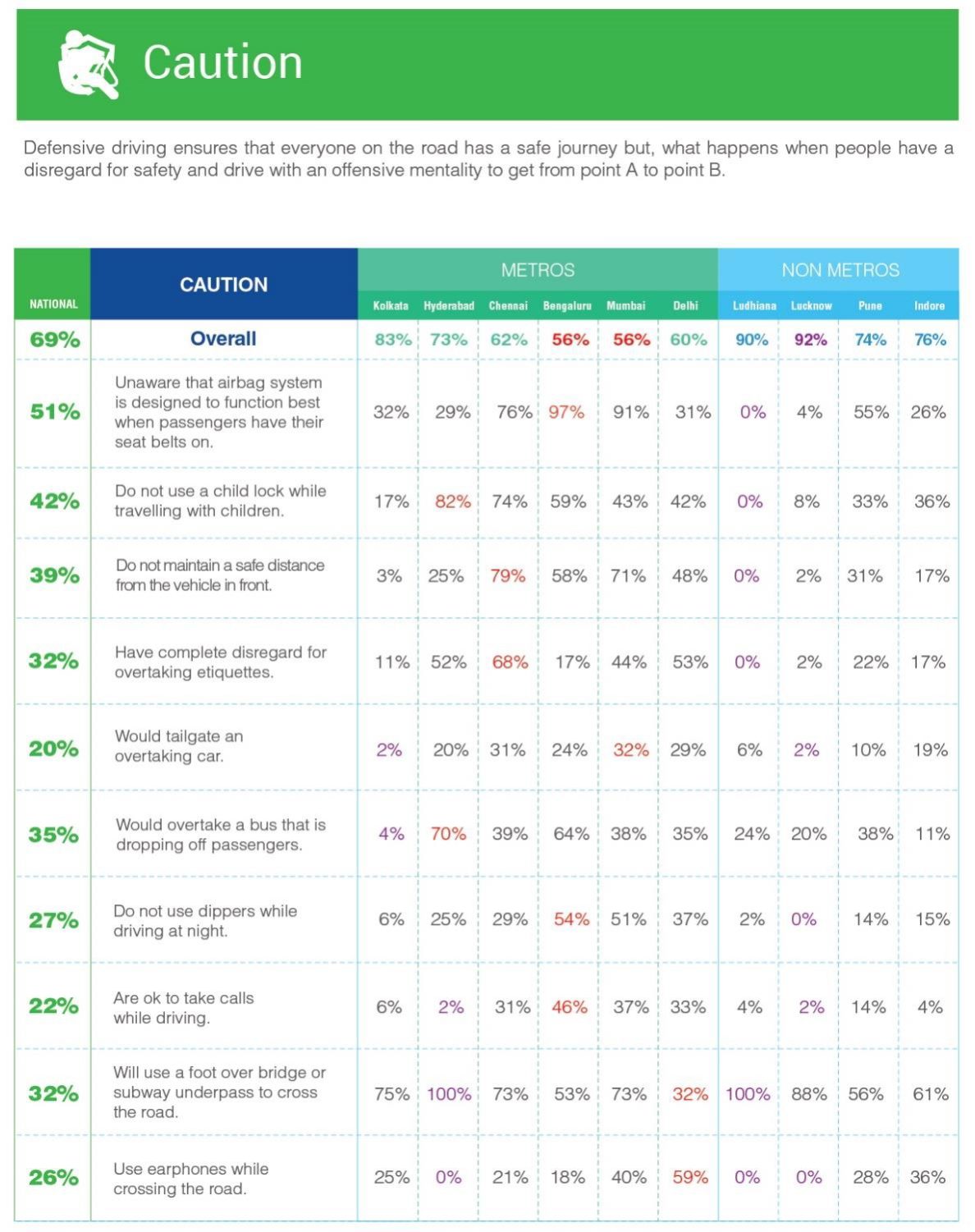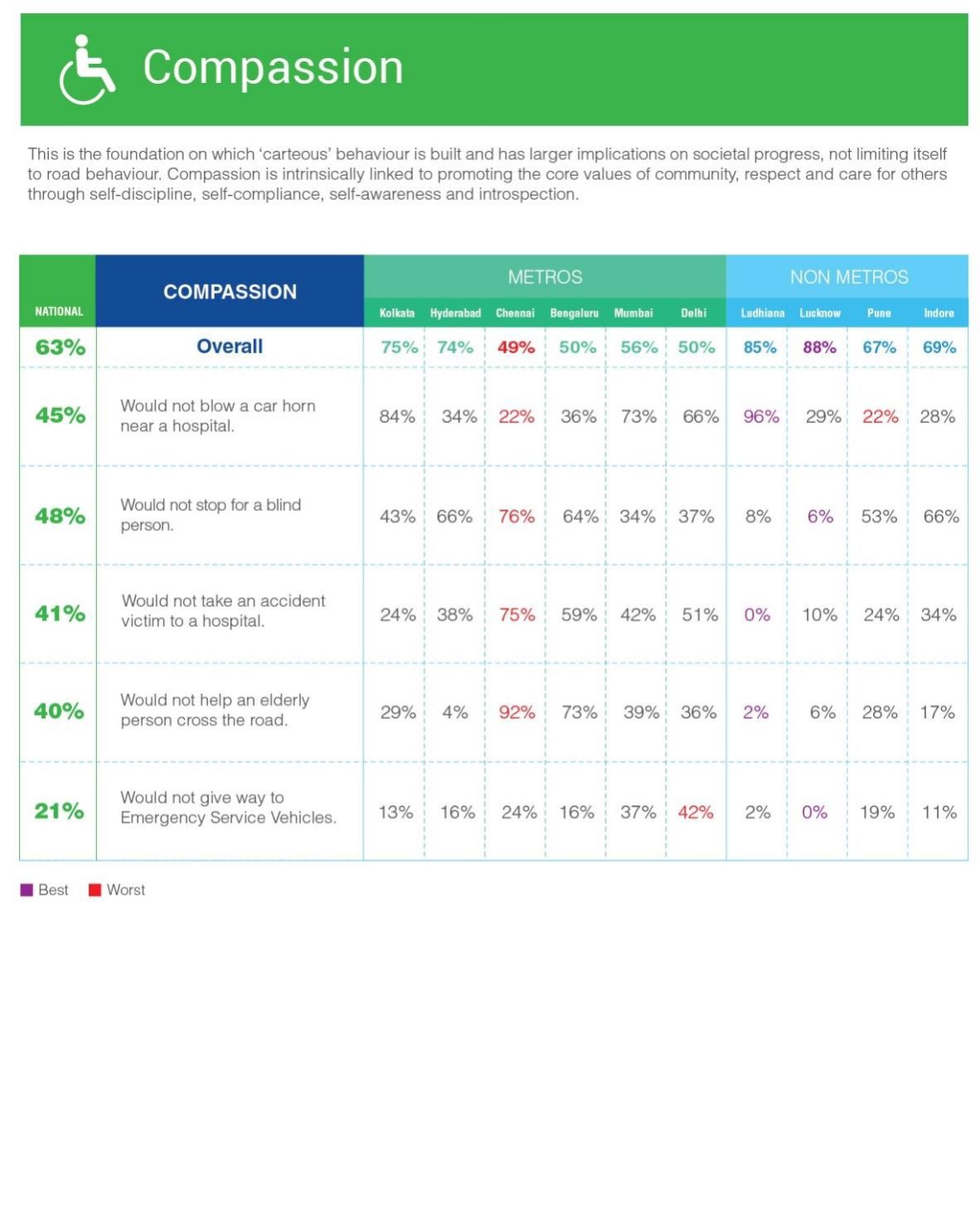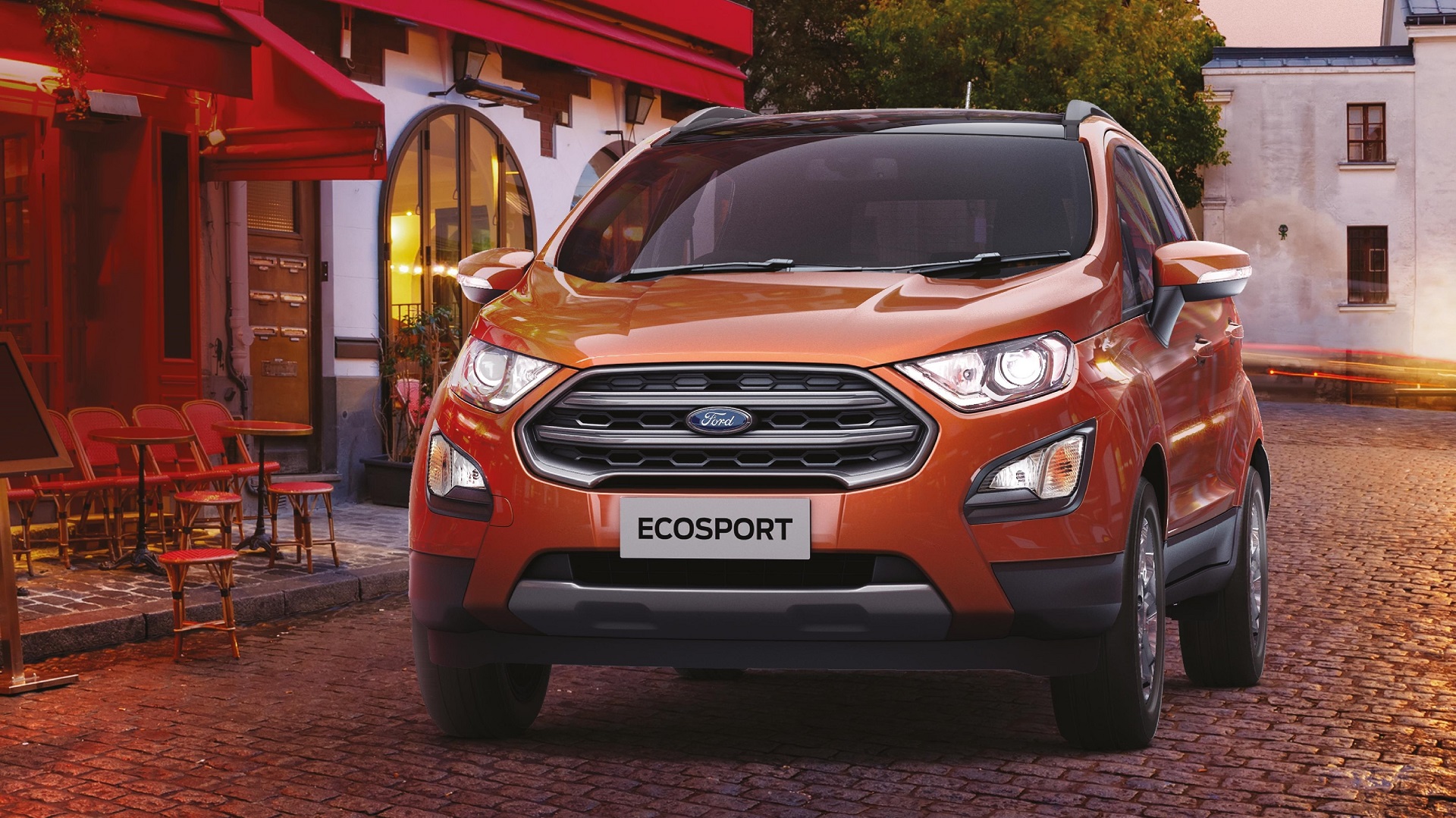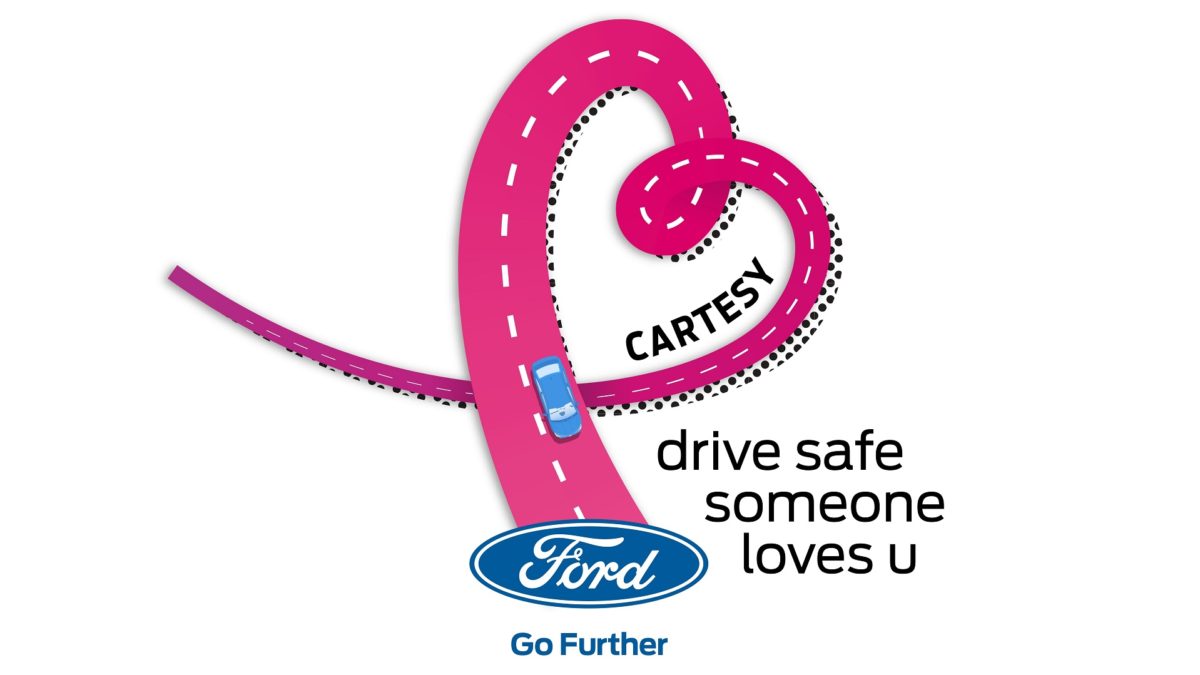Let’s face it, when we think about road safety in India, not that we do very often, we immediately drown ourselves in a lot of uncertainty. You can have the safest car in the world and be the most law-abiding citizen on the move, but your safety on Indian roads depends more on the lakhs of commuters around you. To identify why Indian roads are considered to be amongst the deadliest in the world, Ford India ran a study called ‘Cartesy’. The carmaker captured responses from 1,613 interviewees across 10 cities, out of which 6 were metros, and 4 were non-metros.
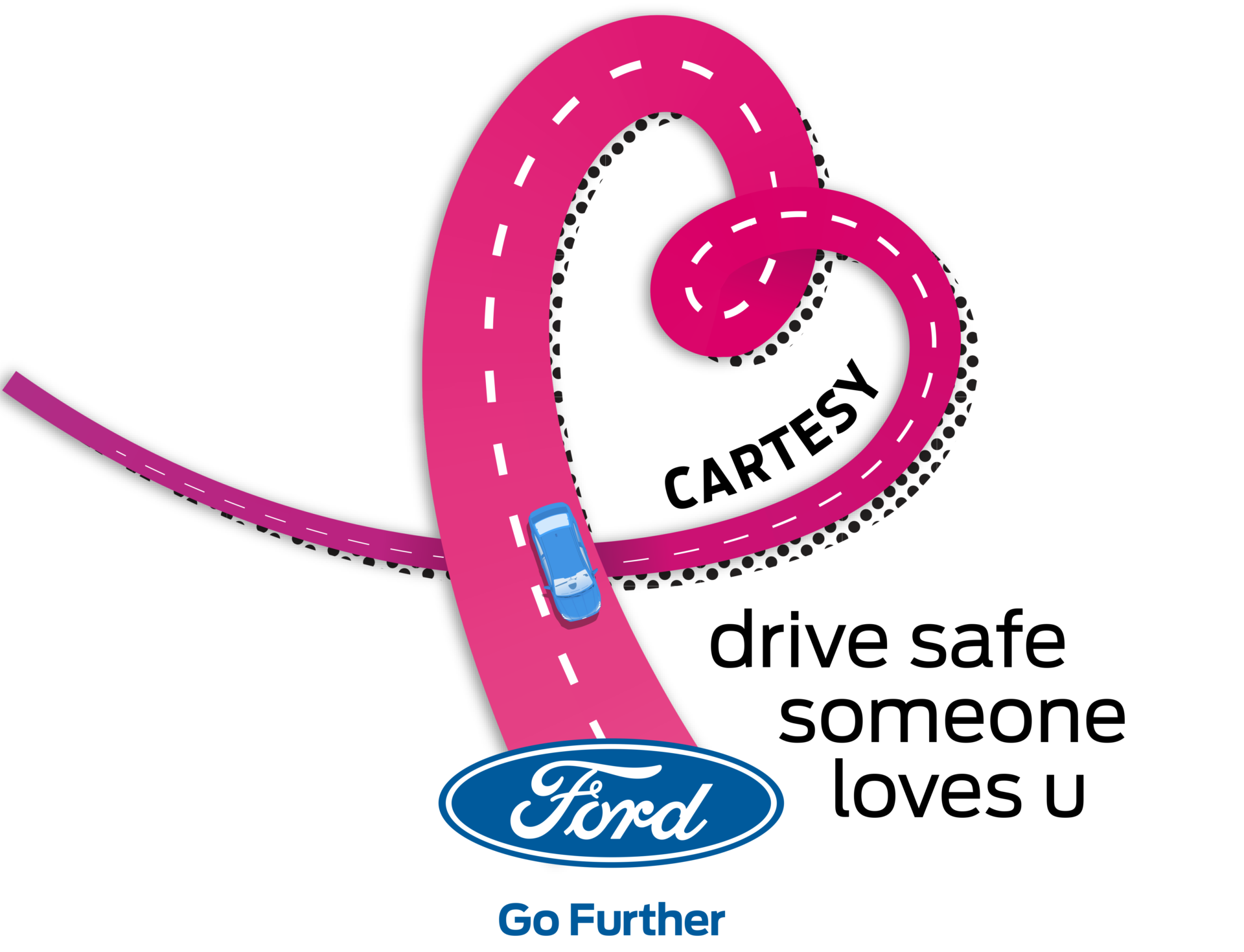
The main idea behind the study was to get a taste of how compliant, cautious and compassionate drivers are on our roads. The metro cities covered in this study were Kolkata, Hyderabad, Chennai, Bengaluru, Mumbai and Delhi. The remaining four were Ludhiana, Lucknow, Pune and Indore.
Obviously, there was a fixed set of questions for all respondents. Speaking of which, they were picked from each of the five segregated zones in all cities – North, South, East, West and Central. 48 per cent of them were private drivers, while the remaining included passengers and pedestrians. The demographic breakdown consisted of 72 per cent responses from men and 28 per cent from women.
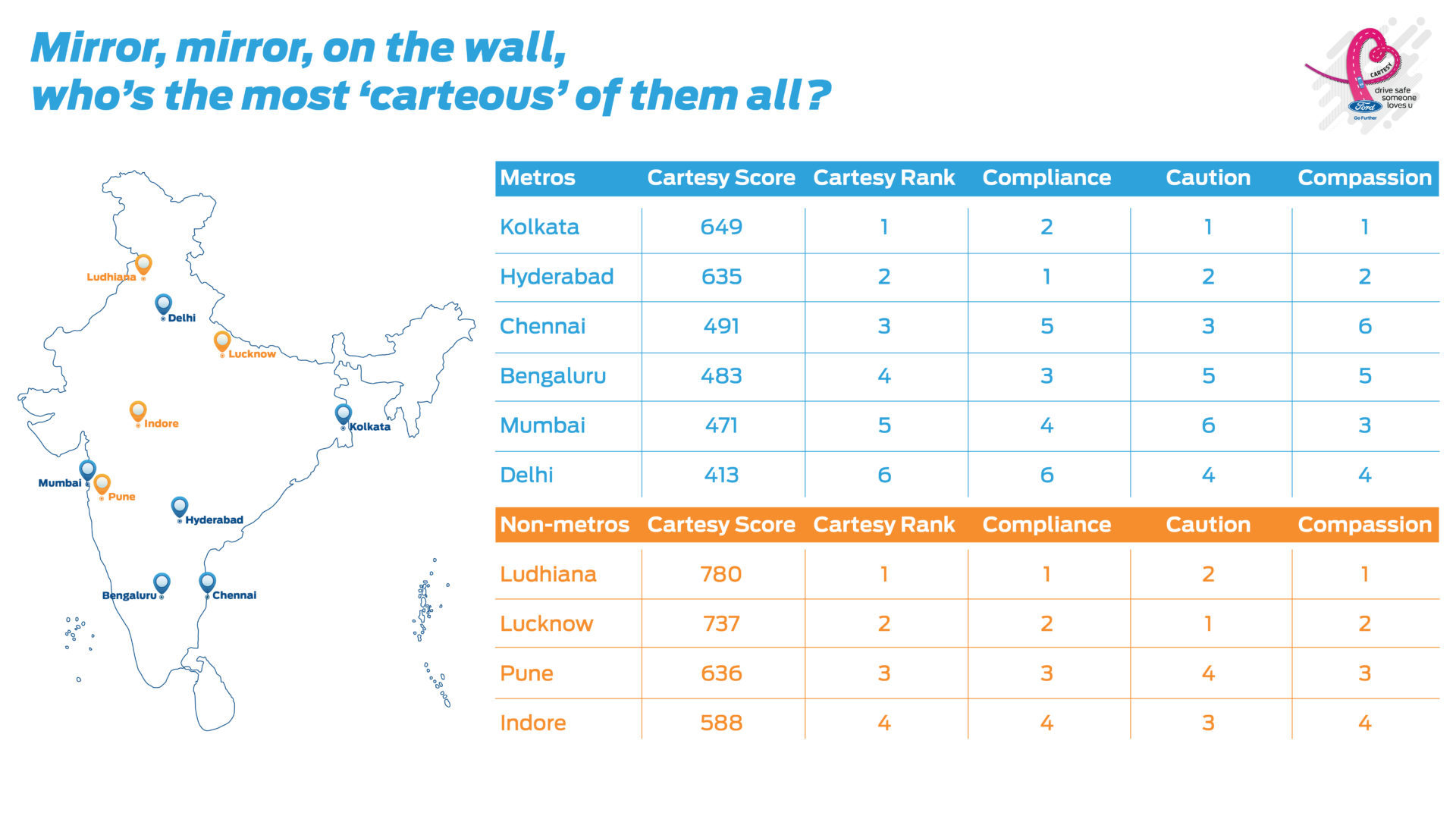
Given below are the main observations based on the responses from all the interviewees:
- 51 per cent did not know that seatbelts and airbags play a vital role in safety.
- 42 per cent said they do not use child locks.
- 27 per cent do not use dipper while driving during darker hours.
- 22 per cent answered that it was okay to answer phone calls while driving.
- Drivers with forgettable experiences on the go, such as an accident or loss were 8 per cent more compassionate, cautious and compliant.
- 22 per cent said they would not stop at a set of traffic lights, even if they were red for them, in the absence of a policeman.
- 22 per cent said they would resort to an old mantra called “influencing” if they were caught breaking a traffic rule by the authorities.
- 33 per cent said they are fine with under-age driving.
- 18 per cent said it was okay to drink and drive.
- 48 per cent accepted that they wouldn’t stop for a blind person.
- 2 out of 5 (approx. 20 per cent) said they wouldn’t go out of the way to help anyone in need of help on the road.
- Nearly 41 per cent said they wouldn’t take an accident victim to a hospital.
- 40 per cent said they wouldn’t help senior citizens on the road.
Apart from those quantifiable observations, Ford India also reported that females are more cautious and compliant on the move, while men were more compassionate. The carmaker also reports that couples with children were found to be more cautious, compassionate and compliant as compared to single and unmarried couples. A fascinating trend was that young couples with infants, who were less than 2 years old, recorded better caution and compassion scores. Those scores start declining as their children start growing up. After their kids reach their teen years, parents start behaving responsibly again on the road. That’s to be a role model.


